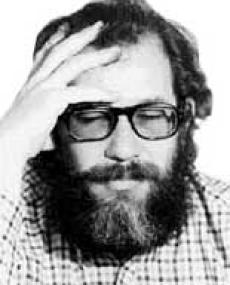
Wokpo was born on 26 July 1939 in Middelburg, Cape Town. He received his education at the University of Potchefstroom, but his studies were temporally interrupted by a motorcycle accident. However, from 1961 to 1964 he enrolled for a Bachelor's Degree in Fine Arts with Botshabelo Training College and the University of Pretoria, and majored in sculpture. During this period, he also worked as an editor for Gerwe Magazine, and as a translator for the Afrikaanse Boekhandel Beperk. Jensma has been known for his extensive traveling, and work experience in countries such as Swaziland, Botswana and Mozambique. He taught art at Serowe Art School in Botswana. Many art analysts have spoken greatly about Jensma's work, although critics have also found flaws. Most spoken about, is the ability to use multiple languages in his poems to strike the message home. As a privileged White artist, he spoke openly about the injustices that were experienced by Black people during apartheid. His poems Once and Now, speaks openly about racism experienced by young girls working as domestic workers. Written around the 1970s, these poems could also be read as an extension of his personal experiences with the South African government. He had a mixed racial marriage that was not allowed or even recognized by the South African laws. But, Once and Now, is not the only poem which Jensma displays his distaste of apartheid laws, in Where White is the colour/Where Black is the number, critically looks at the meaning of being Whiter and Black in South Africa. Written in 1977, this poem was banned.
Later in life, Jensma suffered a psychological illness known as schizophrenia, which incapacitated his artistic skills and turned him into a vagrant. Eventually becoming the state's responsibility, and receiving a disability fund. At this time he was leaving in the Salvation Army Men's Home, a shelter that accommodates people with no where to go. He lived there until 1993 before disappearing without a trace.
He was a family man married to an African, Lydia and together they had two children, a son and a daughter. His son died in 1997.
Poems
1973 Sing for our Execution
1970 Ophir 12
1975 Snarl 1
1977 I must show you my clippings
1977 Where White is the colour/Where Black is the number (banned)
Exhibitions
1968 New York USA
1970 UNISA (Sik-Screen Exhibition)
1971 DAM (Art SA)
1972 Wail for the Beast
1979 SANG (SA Printmakers)